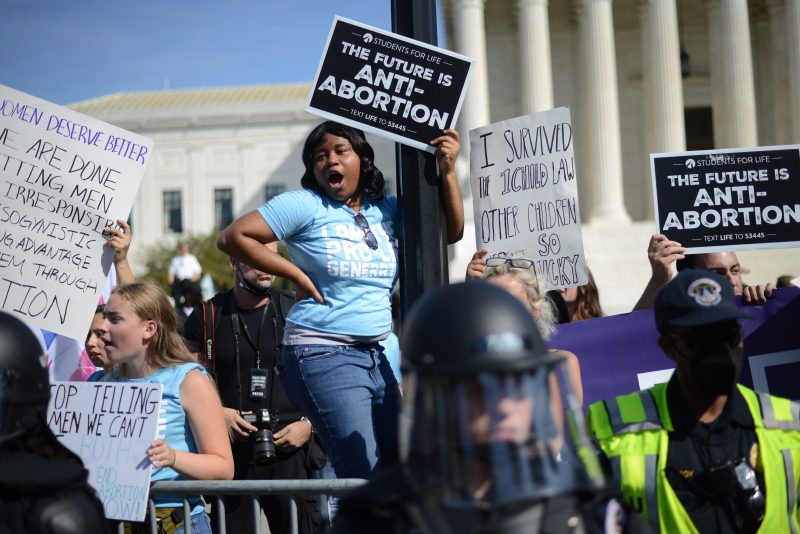The Republican Party’s quest to restrict abortion rights at the state level continues to run into roadblocks — particularly when voters actually weigh in. Ohio on Tuesday became the latest state in which that was the case, with voters rejecting a constitutional amendment that would have assisted the GOP’s efforts by raising the ballot-measure threshold to 60 percent.
Meanwhile, the GOP base appears to be warming to an alternative course: restricting abortion at the federal level.
The Republican Party’s long-running and ultimately successful push to overturn Roe v. Wade has long been premised on federalist ideals. Proponents argued that it would merely let states decide abortion restrictions — and also that the states should be the ones to decide, rather than the federal government.
One year after Roe was overturned, a poll suggests that remains the preferred approach — but Republicans have begun a noticeable move away from it.
A CNN poll conducted after Roe was overturned a year ago found the base was largely in line with the federalist approach. Republican voters who approved of the Supreme Court’s decision said overwhelmingly, 83 percent to 16 percent, that politicians “should leave decisions on abortion restrictions up to the states” rather than “push for further restrictions on abortion nationwide.”
Today, the percentage who prefer to instead “push for further restrictions on abortion nationwide” has doubled, to 34 percent. They now lean in favor of state-level restrictions 66 percent to 34 percent.
It’s possible to oversell these numbers. The results reflect only Republicans who approve of the Supreme Court’s decision — about 7 in 10 — rather than all Republicans. So it amounts to a total of 23 percent of Republicans overall preferring a federal push to a state one.
But that’s still a doubling of the overall percentage who want federal restrictions, in a relatively short period. Republicans have gone from preferring state restrictions to federal ones by a 48-point margin to preferring them by a 22-point margin.
And should the party continue to drift in favor of supporting federal restrictions, that could apply pressure on congressional Republicans and GOP presidential candidates to move in that direction.
So far, both have resisted doing so.
The GOP-controlled House has punted on taking up broad abortion restrictions, with House Speaker Kevin McCarthy (R-Calif.) demurring on a question about federal legislation by saying “it goes to the states, and states will take up that issue.” Senate GOP Leader Mitch McConnell (R-Ky.) has also described federal legislation as unrealistic.
GOP presidential candidates have struggled with this issue. Just last week, a key antiabortion group criticized Florida Gov. Ron DeSantis (R) for saying it was unlikely Congress could do “anything meaningful” on the subject. Former president Donald Trump has said the federal government has a “vital role” to play in opposing abortion but has stopped short of embracing policies like the 15-week federal ban pushed by such groups.
But we’ve also seen how abortion rights are creeping into the congressional GOP agenda.
House Republicans have slipped “riders” on abortion policy into federal legislation, even as it’s not clear those changes have prospects for becoming law. A flash point in the current debate over the Pentagon policy bill is an amendment promoted by conservatives that would prevent the government from providing travel expenses for service members who travel out of state for an abortion.
Republicans who hailed the Supreme Court for sending the issue back to the states have nonetheless co-sponsored federal bans.
And Sen. Lindsey O. Graham (R-S.C.) has continued trying to press for his 15-week federal abortion ban, which has gained support from a handful of GOP presidential candidates.
Given how negatively voters have responded to GOP efforts to restrict abortion, it’s no surprise that congressional Republicans have treated the issue gingerly. But those inclined to regard abortion as tantamount to murder are more likely to do what they can to stop it.
We’re also seeing, including in Ohio on Tuesday, how GOP efforts to restrict abortion at the state level haven’t always gone according to plan. Putting the issue on the ballot appears to be a winning strategy for abortion rights supporters, who are expected to continue to press the issue in that forum.
Which means it’s not difficult to see how momentum behind federal restrictions might continue to build.

